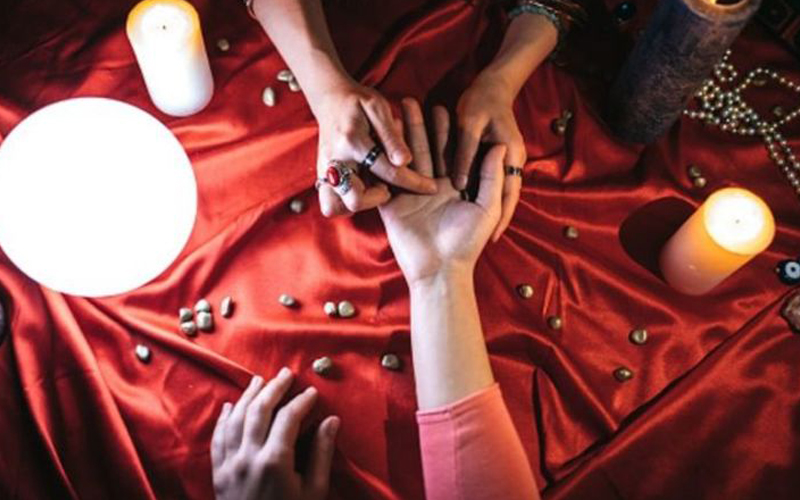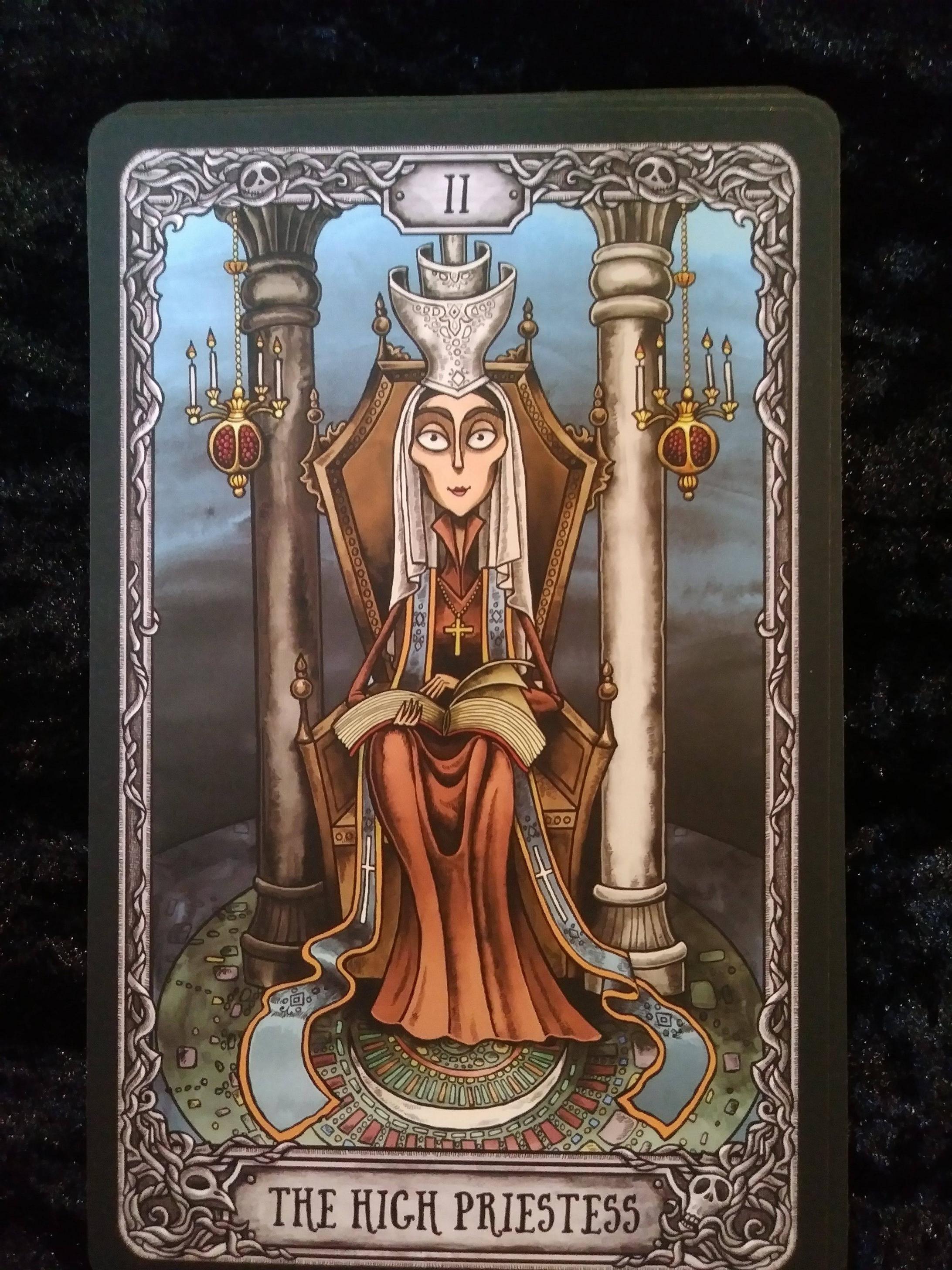
Lenormand cards offer fortune telling with a more traditional, cartomantic approach than the tarot. These cards are based on the standard decks of playing cards and can be used in many ways.
Lenormand, a deck of 36 cards. Each card is personalized with a name. The deck's layout is such that it gives you a visual representation of a situation. Some cards can even be associated with the zodiac signs and planetary signs. The cards are usually read in pairs with the central card reading as a sentence.
The Lenormand can be used with a Grand Tableau. This is a spread which usually contains three to five cards. The focus card, or central card, is selected. The Grand Tableau cards are arranged in a specific order. This gives them a special meaning. The cards that surround the focus card are known as anchor cards. These cards act as locators.

Conics are simple sentences that combine a number of cards. The Lenormand can also be used to create them. These conics typically use one card as the base and include a word association. One example is the Ring card which might have a hula dancing performer. This symbolises agreements. A clover could be associated to the card, which represents luck. The meaning of a card can vary depending on its deck or art.
There are some similarities between the Major Arcana and Lenormand. It's a bit more complicated, and it uses more cards to achieve its effect. These decks can be designed with images that include animals, flowers, and court cards. The decks also often have an inset, which is used for a tree.
Unlike tarot cards, which provide a psychological and emotional picture of a situation, the Lenormand focuses on the physical and external elements of a situation. For example, the Snake and Fish may be interpreted as symbols for water pipes in the house. The Whip-Child may be used to refer to a minor argument.
The Lenormand can often be confused with the Tarot. The Tarot is a method of reading that uses individual cards to describe the person or their inner emotions. It can also help you learn many things, like Karma. The Lenormand, however, is an astrological method that combines playing-cards with everyday images.

While the Lenormand can be a simple method to master, it can be intimidating for beginners. You can start by practicing. It is important to practice by only reading one card at time. Online resources can give you more information on the Lenormand. You can also look for books that offer a greater number of combinations. When you are looking for answers to your questions, the Lenormand can be a powerful tool.
FAQ
Why do we require hobbies?
Hobbies are a vital part of our lives as they allow us to unwind, relax, think creatively and exercise. They also give us the opportunity to socialize, network, and have fun. They also provide us with opportunities for learning new skills and developing valuable life-long interests.
Hobbies can help us find meaning and purpose.
These can often be a great way to get some extra time while you have nothing else.
They're even fun!
If you don't have time for a hobby, then you probably don't have time for anything else either.
You have many choices. Start a hobby today, if you don’t have one already!
What are educational hobbies?
An educational hobby involves a sport or other activity where you can learn something from doing it. It could be anything, from playing sports to learning how an instrument is played.
The most important thing is that you find it enjoyable and entertaining. While you don't need to do it every day, if bored you might consider other activities.
Also, you need to be careful not to spend too much on these activities. They can end up costing more than you think.
What's a hobby?
Anything kids like to do that is not part of their daily routine is a hobby. Children might be drawn to, build, paint, create stories, play with toys or watch TV.
Many parents worry that their kids will get into trouble when they're free to do what they want. This isn't necessarily true, though. If your child is safe and doesn't cause harm to themselves or anyone else, they won't get into trouble.
It's important to remember that just because they like to do something doesn't mean that they'll always choose to do it. If they are passionate about drawing but hate writing, they might choose to draw pictures over writing.
There are many types of hobbies. It's up to you to choose one that you really enjoy.
How do I get started?
It is important to choose the type of hobby you want to start.
Passion is essential once you have selected your subject.
It's important to understand why you want to start a particular hobby. This will help give you direction and provide a purpose.
Once you've chosen the hobby you would like to pursue you can start planning.
Think about the equipment that will be needed.
You should consider whether or not you will need to take classes or attend seminars.
Make sure that you have enough space in your home for your hobby.
It might also be worth considering joining a group or club. These groups often offer advice and support.
Finally, think about how much money you would need to spend on your hobby.
What are the competitive hobbies?
Swimming, running, cycling, golfing and tennis are some of the competitive sports.
They are usually enjoyed by people who enjoy being active, but also allow for social interaction.
You will probably find people around you who have the same hobby as you, if you are into physical activity.
This could be as simple as joining a sports club where you play regularly together.
You could also opt to take part in team games that involve playing alongside others.
These include cricket, football, netball, hockey, netball, soccer, rugby, cricket, rugby, batsball, hockey, volleyball, badminton squash, handball and table tennis.
There are many types of competition.
Some competitions may be held for pure recreational purposes.
Others are intended to test competitors' skill.
Yet, there are others that reward exceptional performance.
These cases award prizes to the winners.
Other competitions are meant to test competitors' strength and stamina.
These are known endurance events.
For example, marathon races, triathlons, Ironman Triathlon, etc.
Athletes often train hard before competing in these events.
To prepare their bodies and minds, they will have to adhere to a strict training plan.
They may need to spend some time out of their home for preparation.
It's important to remember that not all athletes compete in every type of event.
What are some ideas for hobbies?
Hobby Ideas For People Who Love to Teach and Learn.
Hobbies can allow you to be creative and have fun while learning.
While there are many types of hobbies available, most share the same characteristics. These hobbies are often enjoyable and require minimal effort.
These involve working with others.
Even though you might not think of yourself to be a teacher or a tutor, chances are there are things you can do that could help someone else.
So if you want to be more creative in your life, consider starting a hobby where you can use your skills to help others.
What are observation hobbies?
Observation hobbies allow you to observe others doing the same thing. They might include watching sports, reading books, going on holiday, etc. It could also include observing others.
It's great to have observation hobbies because it helps you think creatively. This knowledge will be useful later in your work for others and yourself.
You'll find that if you're interested in something, then you'll have an easier time learning about it.
If you are interested in learning more about football, for example, you might watch a match or read a book. You could visit or take part in exhibitions if you are interested in learning more about photography.
If you enjoy playing music, you could play along to songs online or buy a guitar.
You could also choose to cook at home or go to restaurants if you are a good cook.
If you like gardening, you could grow vegetables or flowers.
If you are a fan of dancing, you can join a class or go out with your friends to learn.
If you enjoy painting, you might paint pictures.
Writing poetry or stories is a passion if you are a writer.
If you like drawing, you could draw pictures.
If you love animals, you could look after pets or work at a zoo.
You could choose to study biology, maths, chemistry, or physics if you are interested in science.
If history is your passion, you can either read books or watch films. Or you could listen to podcasts.
If you enjoy travelling, you might consider exploring your local area or traveling abroad.
Statistics
- A new survey by Pew Research Center of teens ages 13 to 17 finds that 36% of girls feel tense or nervous about their day every day; 23% of boys say the same. (pewresearch.org)
- Much of this decline reflects the fact that teens are less likely to work today than in the past; among employed teens, the amount of time spent working is not much different now than it was around 2005. (pewresearch.org)
- This 100% accurate personality-analyzing hobby quiz discovers your passion based on your characteristics. (quizexpo.com)
- The Role of the Mind in Sex, Dating, and Love: Men in the “humor” condition received phone numbers from 42.9% of the female participants and were refused 57.1% of the time. (time.com)
- 37% Video Games 36% Travel 36% Health and Fitness (quizexpo.com)
External Links
How To
How to choose the right hobby
If you ask yourself some questions, you may be able to tell whether your hobby is right for you:
-
Do I enjoy doing it?
-
Does it give me pleasure?
-
Is it something I would like to keep doing even when I'm older?
-
Am I good at it?
-
Can I improve?
-
Would you recommend it to others?
-
It will bring me joy.
-
It will help me relax.
-
Will it make me feel better about myself?
-
Will it teach me skills that I can use later in life?
-
It could allow me to make new friends.
-
Can it let me express my creativity?
-
Do I have the opportunity to learn something new?
-
Is it going to give me the confidence?
-
Do I feel accomplished?
-
Will it lead to financial success?
-
It will allow me to travel.
-
Is it possible to go on new adventures?
-
Do you think it will motivate me to exercise?
-
Is it going to inspire me?
-
It will motivate me to succeed.
-
What activities will I be required to do?
-
It will challenge me.
-
It could be fun.
-
Is it going to keep me fit?
-
Can it help you save money?
-
Will it decrease stress levels?
-
Is it going to stop me from getting bored?
-
Will it free up my time?